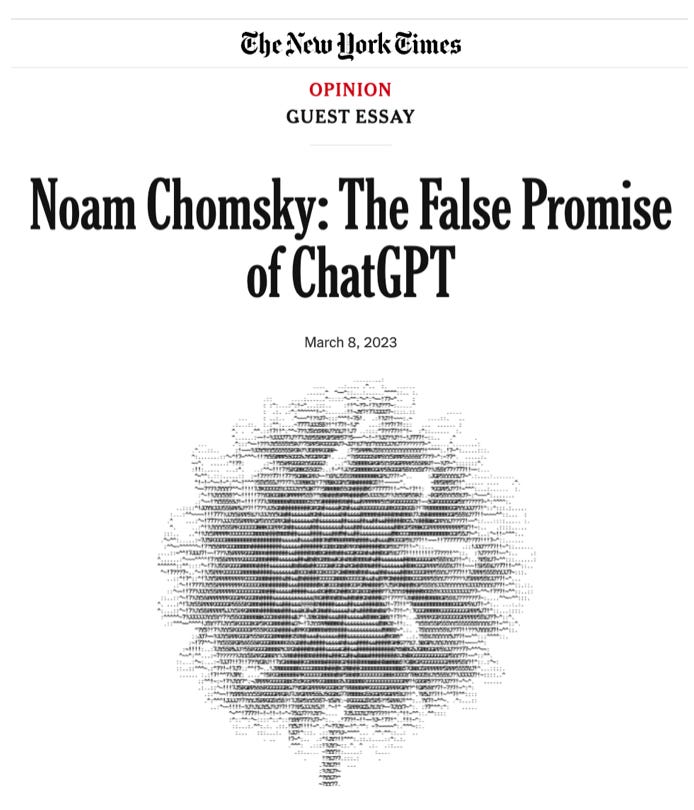ChatGPT vs. the prophet Isaiah
Is what you do today determined by your past... or your future?
Here’s the core of Chomsky’s argument:
The human mind is not, like ChatGPT and its ilk, a lumbering statistical engine for pattern matching, gorging on hundreds of terabytes of data and extrapolating the most likely conversational response or most probable answer to a scientific question. On the contrary, the human mind is a surprisingly efficient and even elegant system that operates with small amounts of information; it seeks not to infer brute correlations among data points but to create explanations.
For Chomsky, the difference between ChatGPT and the human mind is mostly about efficiency.
ChatGPT generates “brute correlations” by functioning like a massive auto-complete engine: How should I answer a particular question? To find out, let’s examine huge quantities of information to determine how that question and others like it have been answered in the past.
In contrast, the human mind doesn’t require massive quantities of information to generate answers. It can respond to questions and create explanations with relatively small amounts of data. The human mind is “elegant”; ChatGPT is a “brute.”
Despite this difference, the human mind (Chomsky edition) and ChatGPT share one basic feature: The past precipitates the present. Cause leads to effect. Careful examination of evidence leads to explanations. Our destiny lies within the data. What once was begets what is and what will be. But there’s a huge problem with this way of thinking.
Consider the prophet Isaiah:

Never in human history has the world been completely at peace. Swords and spears are as old as our ability to make them. The lion has never stretched out leisurely beside the lamb.
Isaiah’s vision of the future bears no resemblance to anything in the past. Both Chomsky and ChatGPT could not make such statements about swords and plowshares because there’s nothing in the data to suggest that such a future is remotely possible. We’ll keep killing each other because we’ve always killed each other, and there’s lots of data to prove it.
So, if you’re looking for more of what we’ve already done, consult with Chomsky, your favorite artificial intelligence bot, and your news feed. The past will be happy to repeat itself… forever.
But if you’re looking for something different, for a future that could be a qualitative departure from our past, then it might be wise to look elsewhere.




Short and sweet.
Excellently spoken.